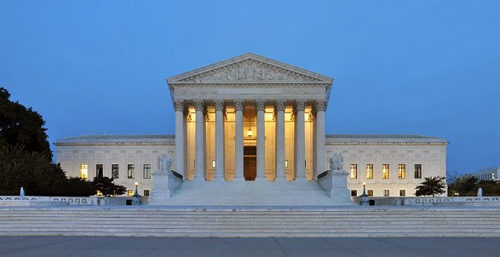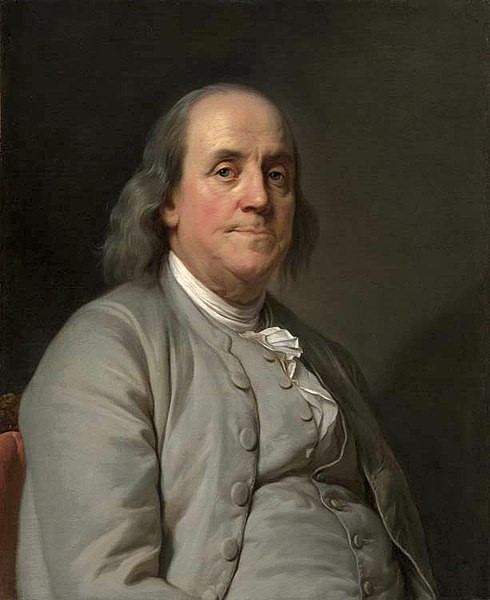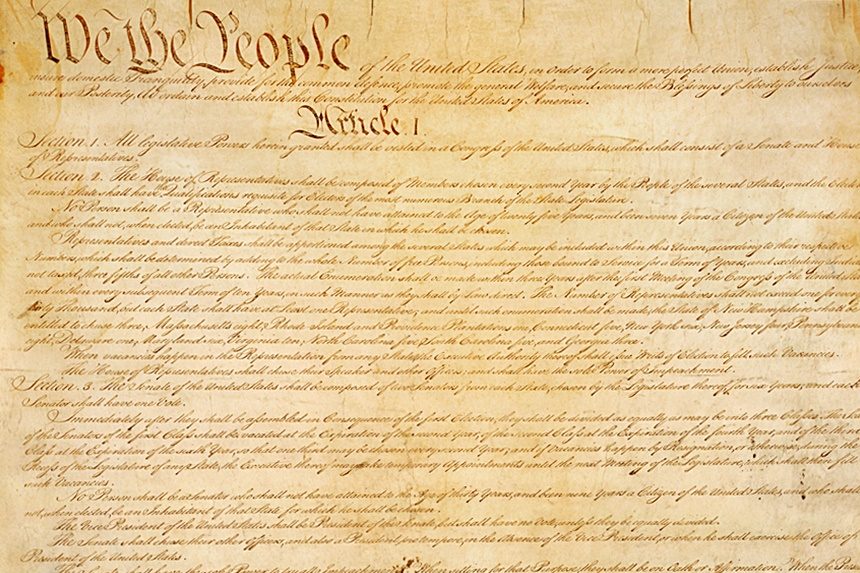If you woke up feeling doubly patriotic today, we’ve got an explanation. It’s both Constitution Day and Citizenship Day. The dual-date comes from a chain of observances that were codified into its current arrangement by Congress in 2004. Citizenship Day celebrates being an American, including the act of immigrants obtaining citizenship, while Constitution Day recognizes the importance of the document that’s the bedrock of our country. In that spirit, we decided to do our duty as citizens by recognizing a few of the overlooked Amendments to the U.S. Constitution. Sure, everybody knows what’s in I and II, but what about XII, for example, and why is that important? Put on your tri-cornered hat and read about your rights, citizens.
1. The Third: No Quartering Given
It’s possible that the First and Second Amendments get the most mentions in daily news and conversation. However, the Third is extremely important and definitely a product of its time. It expressly forbids soldiers from being quartered in private residences without the owner’s consent during times of conflict, and makes it completely illegal during peacetime. This is a direct rejection of a common practice during British rule, when colonists would frequently be forced to share their homes with British troops. Ratified on September 15, 1791.

2. The Ninth: It’s Got You Covered
The Ninth Amendment is a pretty clever legal instrument. While the other amendments in the original Bill of Rights are “enumerated” because they are directly written into the document, the Ninth spells out that you as a citizen have other “unenumerated rights,” even if they aren’t spelled out. Various Supreme Court cases have decided that these rights include things like the right to travel, the right to keep medical records private, the right to privacy regarding one’s marriage, the right to vote, and the right to make one’s own health care decisions. Ratified on September 15, 1791.
3. The Twelfth: No Office for Second Place

In our first presidential elections, the candidate who finished first became president, and the second-place finisher became vice-president. This amendment throws that out, forwarding the idea that presidential and vice-presidential candidates run together and are elected together. The first time that this happened in the U.S. was in 1804, when Thomas Jefferson was elected with his running mate, George Clinton (funny, we always pictured him in Parliament). Ratified on June 15, 1804.
4. The Sixteenth: Along with Death, the Other Certain Thing

In public debate, people frequently ask where income tax began. The concept is ancient, but it was enshrined into American law with this amendment. It allows for a federal income tax that is not spread out among the states; the monies levied go the federal level, rather than the state. It’s pretty straightforward, yet many people don’t realize the amendment is there. Ratified on February 3, 1913.
5. The Twenty-Seventh: Congress Can’t Give Itself an Immediate Raise
The most recent amendment prevents any pay raise voted upon by Congress to take effect until after the next election. This prevents, in theory, Congress voting for a raise for itself and then immediately benefitting. A senator or representative up for re-election would have to run, win, and be sworn back in before taking advantage of the raise. It’s a minor technicality, really, but it does allay some fears about corruption in the process. Ratified on May 5, 1992.
Become a Saturday Evening Post member and enjoy unlimited access. Subscribe now




Comments
Thanks Troy. I really didn’t know about these before. With # 5, we apparently have this amendment to thank for Congress not being any more corrupt (hard to imagine) than it already is! Its uselessness otherwise would make an interesting feature for another time.